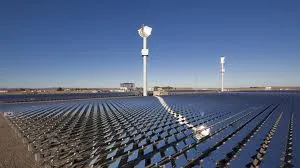
Japan lacks land for renewable energy drive
Electricity prices will be an even more serious issue if Japan is to cut back on nuclear power and rely more on renewable sources like solar and wind.
Paul Scalise, a postgraduate fellow at the University of Tokyo's Institute of Science, noted this will require far greater land area to match the capacity of nuclear reactors.
Scalise was speaking at a seminar organized by the Keizai Koho Center to discuss the prospect of electricity and energy policy reforms, along with Kenji Yamaji, director general of the Research Institute of Innovative Technology for the Earth and a professor emeritus of the University of Tokyo.
Scalise observes there is little room to expand hydroelectric power generation "as most of the available sites — dams and rivers — have already been captured in this country.
"One overarching problem will be how much land space would we need to move away from nuclear and fossil fuels into renewable energy," he said. "This is a practical question to ask given Japan's high population density ratio as well as the overall size of its economy."
In a country where 65 percent of its land space is forest area and another 11 percent is arable land, "how practical it is to match 1 gigawatt of power needs (supplied by a nuclear reactor) with solar panels? You cannot possibly fill the entire country with PV panels," he said. The same issue arises with wind power — only worse, he added.
Yamaji said the target set in 2010 to increase the share of renewable sources in Japan's energy mix to 20 percent by 2030 was in itself fairly optimistic. It would be extremely difficult to further raise the target, he said.
The problem with solar and wind power, Yamaji pointed out, is that the electricity output per unit space is much lower than other sources, and therefore expanding solar and wind power generation on a massive scale will face cost and environmental hurdles. Also, power generation from these sources requires additional costs to stabilize the output that inevitably varies depending on natural conditions, he said.
Yamaji suggested that among renewable sources, the feed-in tariff scheme should be utilized more to promote the ones whose output is more stable, especially small-scale hydroelectric and geothermals.
For more.








![Cross Domain [Manu + SBR + ABF + ABR + FMCG + HBR + ]](https://cmg-qa.s3.ap-southeast-1.amazonaws.com/s3fs-public/styles/exclusive_featured_article/public/2025-01/earth-3537401_1920_4.jpg.webp?itok=WaRpTJwE)
![Cross Domain [SBR + ABR]](https://cmg-qa.s3.ap-southeast-1.amazonaws.com/s3fs-public/styles/exclusive_featured_article/public/2025-01/pexels-jahoo-867092-2_1.jpg.webp?itok=o7MUL1oO)









 Advertise
Advertise


